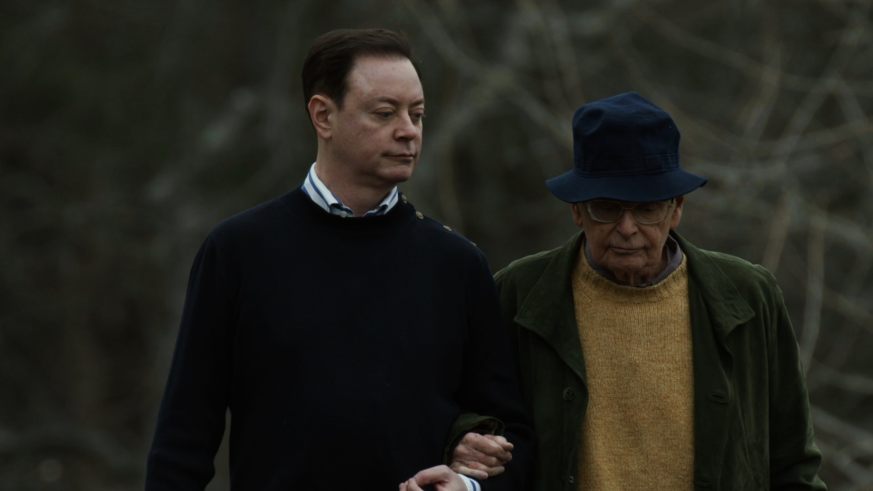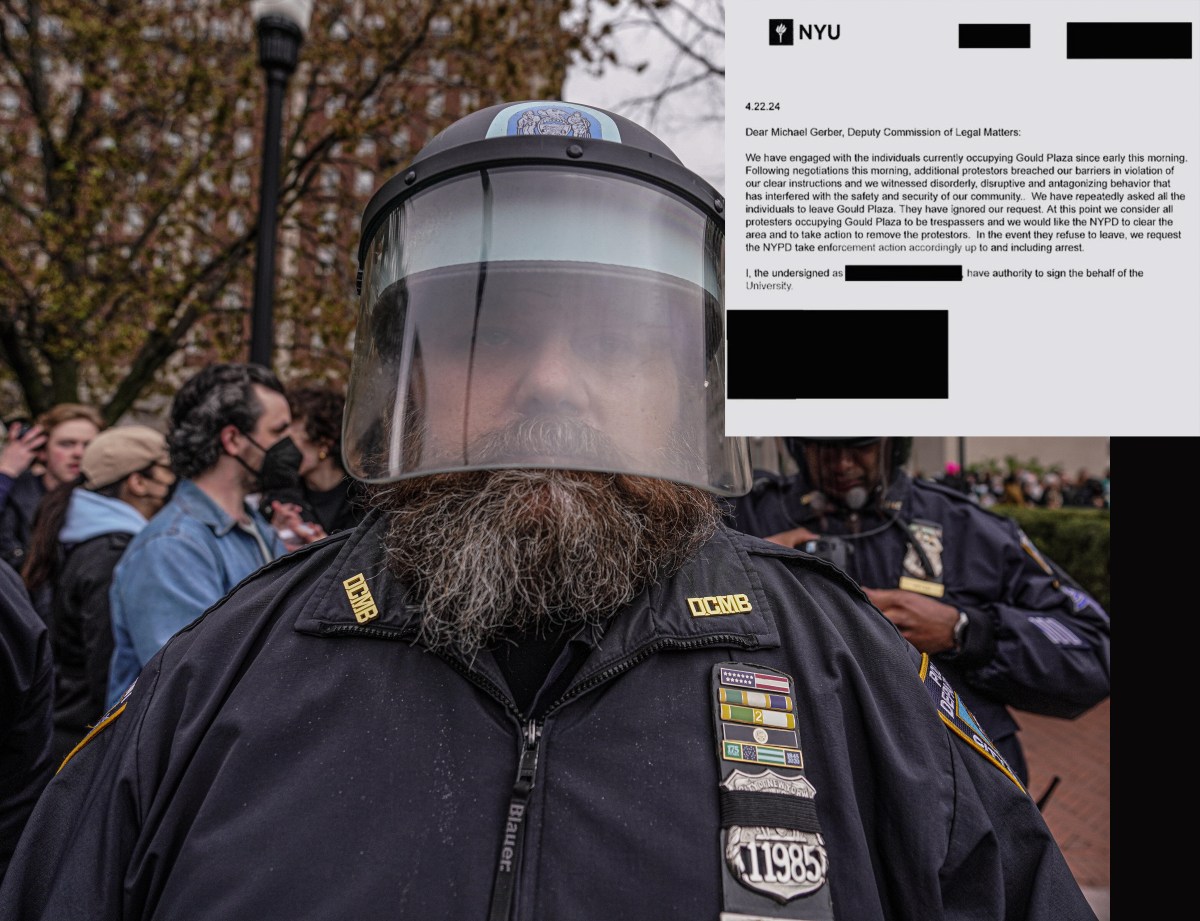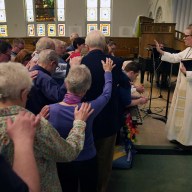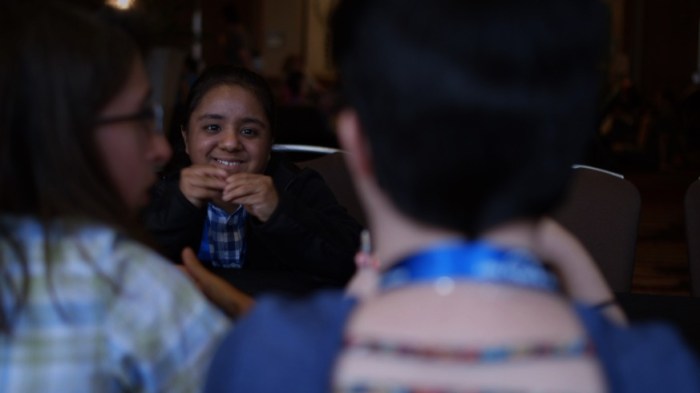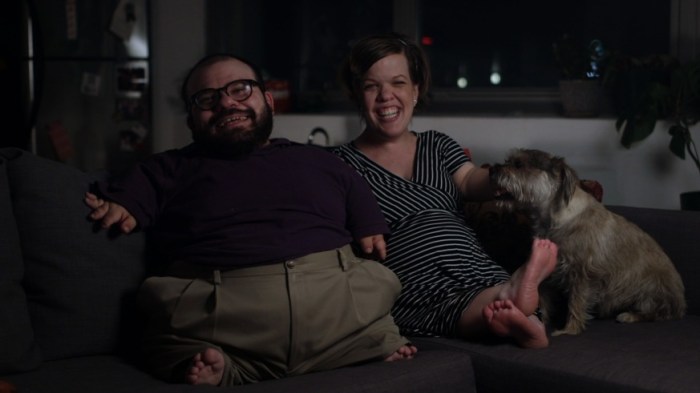Far From The Tree is an illuminating, powerful and hugely impactful documentary that provides an eye-opening glimpse into the lives of Down syndrome suffer Jason, autistic Jack, little people Loini, Leah and Joseph, the Reese family, whose eldest son Trevor is serving life in prison, as well as Andrew Solomon’s struggles with his sexuality.
After reading Solomon’s best-selling novel of the same name, documentarian Rachel Dretzin immediately saw the cinematic potential in the book.
“It is an 800-page book, it is very dense. To someone who hasn’t read the book, the movie might not necessarily jump out. But when you read the book, or just part of the book, it is so striking just how emotional the stories are, how cinematic they are, just how much of a narrative arc they have.”
“They are stories of diversity and triumph. They are very cinematic in that sense, the struggle and the resolution is something that all filmmakers look for.”
But rather than just bringing the book’s stories to the big-screen, Dretzin decided to interview different families for the film.”
“The first decision we made was not to use the stories in the book. We made that for several reasons, but the principal decision one was that the book took 10 years to report and write.”
“So by the time we were shooting it had already been out for a few years. A book is really about what has happened, and a film works best when it is about what is happening.”
“I felt strongly that we needed families that were going through something that was happening in front of the camera. So for the most part, the stories and the families from the book did not fit that description.”
Rather than being peeved, Solomon was actually more than happy to let Dretzin make the necessary changes to her adaptation of “Far From The Tree.”
“One of the wonderful things in the way that Andrew approached this is, he’s an incredible writer, and there are few writers that have the greatness Andrew has. But he is not a filmmaker, and he knows it.”
“He has never tried to be a filmmaker. And he really left me to do my job. He was a real collaborator. So he was always there, and I consulted with him all the way through.”
“Me and the producer would sit down with him when we were trying to pick the families, on a couple of occasions, with the Reese family, he got very involved. Talking with them, in fact Andrew actually brought them to us.”
“Mostly we did the filming, we were out in the field, we did the shooting, we put it together, and then once we had it at a rough cut stage Andrew was great. He got quite involved in his own story, because I think it was terrifying for him to trust his own biography in film to someone else.”
“But he also gave us notes about the film itself. So he was a real producer. Just not hands on.”
There is actually one story in the book that made it into the film, though.
“The story of Jason Kingsley, who has Down’s syndrome. He and his mother are in the book. The Three Musketeers, the guys that he lives with, are not really in the book, because that happened towards the end as Andrew was writing it.”
“Otherwise it is all new, and that was a really big process to find all of these families. It took us close to a year. The book has dozens and dozens of stories, but the film could only really handle a handful, otherwise the audience gets overwhelmed.”
“I knew that every single family had to round out the stories, because what the book did in 800 pages we had to do in 90 minutes. So there was a lot riding on the selection of stories.”
For Dretzin, easily the toughest of “Far From The Tree’s” stories to not just find but to incorporate was that of Trevor Reese, who killed an 8-year-old in 2013 and is currently serving life imprisonment, and his family.
“Trevor’s story was definitely the toughest on many levels. It was the toughest to find. It was the toughest to get the family to participate. It was the toughest to shoot. And it was the toughest to include and gel with the other stories.”
“It is in some ways an outlier, but an outlier that we felt very strongly about including. People can experience difference in their children in many ways, and they are not physical, they are not disabilities.”
“There is an occasion where the child behaves in a way that feels alien and in many ways evil. We really wanted the film that wasn’t about a physical difference or disability, but was behavioral.”
“We also felt that what parents whose child have committed a crime go through is kind of unique. In the sense that people usually assume that the family had something to do with what happened. In the sense that he committed a crime, they must have done something wrong.”
“So that stigma I think is a really important story and really important experience. So we were pretty determined to include a story like this one. But once we made that decision it was really difficult to find the right one. It was terribly difficult to make it work, because it does have a different tone.”
“We also didn’t want the story to be about the murder and why we committed the murder. So it was challenging not to get lost in the details of what he did, and to just focus on his family. That was one of the reasons we decided not to interview him.”
“Because we were afraid it would just become about why he did it, and that’s a different movie. Not ours.”
“Far From The Tree” is now in select cinemas.

